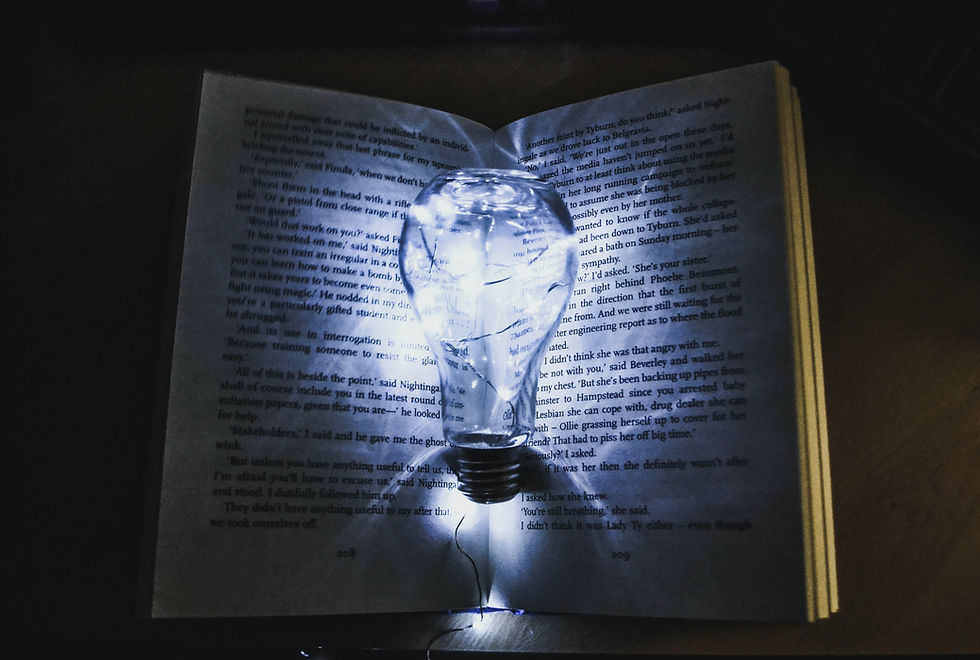How Often Should I Masturbate?
- The Lover Team

- Jul 5, 2020
- 4 min read
Updated: Dec 6, 2022

Many people feel shame or guilt about masturbation. Sometimes we’re taught that it’s dirty and embarrassing, or that it can take away opportunities for sex in a relationship. Some of us were taught that it’s “slutty” or perverted. Masturbation is tied up with a ton of negative connotations. As a result, there are also rumors about its negative impacts, including that it leads to premature aging, infertility, or cheating.
Those rumors aren't correct. Masturbation is a valuable part of a solo sex life, and most people do it. It’s a way to get more in touch with what you like, which has a ton of benefits for both solo and partnered sex. It does not lead to premature aging or infertility. It doesn’t lead to, and is not, cheating.
In fact, masturbation has benefits like better mood, concentration, focus, and cognition. It can reduce pain, blood pressure, and stress, and improve sleep and even your immune system. It can also drive sexual desire back up if you struggle with low desire. Having sex leads to having more sex, and by engaging with yourself you’ll boost your desire to engage with a partner, too.
For people with penises, masturbation has an added benefit: if you struggle with premature or involuntary ejaculation, it can be a way to practice lasting longer in bed and getting more control over your orgasm.
For people with vulvas, it’s just as key. Dr. Britney Blair, clinical psychologist, and Lover co-founder says: “Partnered activity is great, but masturbation is the single best thing people with vaginas can do for their sexual wellness.” Every time you masturbate, you build stronger ways to connect with your sexual desire and pleasure. The more you know what you like, the more you’ll be able to share about what you like with a partner, which will lead to better sex.
No matter your age or gender, masturbation can be an enjoyable, normal, and fun part of any healthy sex life. It’s how most of us first learn about sex and pleasure, and it’s a way to continue to connect with your body, arousal, fantasies, and desires throughout your life.
Is It Possible to Masturbate Too Much?
If you have a penis and you’re over the age of 25, try to limit masturbation to once every 48 to 72 hours. Doing so will make sure you get the most pleasure possible, including having the best erections and orgasms possible, alone and with partners. This is particularly true if you experience erectile dysfunction. (As a reminder: at some point, everyone with a penis experiences erectile dysfunction.)
If you’re under the age of 25, there’s no scientific evidence to suggest that masturbation has a negative impact on your health, orgasm, or erection quality.
No matter your age or gender, you masturbate so often that it’s having a negative impact on your daily life and relationships, it might be time to reassess your relationship with solo sex.
If you have a vulva, congratulations! Daily masturbation can help drive up your desire and get you used to having orgasms, which can make it easier to have even more orgasms in both solo and partnered sex. “The more the better,” Dr. Blair says.
“For people with vulvas, masturbation is the best way to optimize your sexual health. For people with vulvas, I recommend masturbating every single day. Get your body used to climax,” Dr. Blair says. In other words: go for it!

Switch Up Your Masturbation Style
No matter how often you masturbate, switch up your masturbation style every now and again. There’s nothing wrong with having a go-to location, position, technique, and fantasy, but over time masturbating in only one way can make it more difficult to have an orgasm during partnered sex, or in any way that isn’t that one way.
“The biggest thing about masturbation is variation. Variety is really important,” Dr. Blair says.
For instance, if you have a penis, using a death grip is very intense stimulation that you won’t be able to replicate in partnered sex outside of mutual masturbation. “If you have a penis and you get used to a certain speed and grip, it’s going to make it hard to have an orgasm with a partner. And people on the receiving end are not a huge fan,” Dr. Blair says.
If you have a vulva and enjoy receiving penetration, try to occasionally masturbate in positions or use sex toys that are compatible with partnered sex. “If you have a vulva, using different toys or sometimes just touching yourself so you don’t get acclimated to one sensation,” Dr. Blair says. If you use sex toys, a variety of sizes, and used a variety of ways, can help you mix it up and not get too used to having an orgasm only one way. Just remember: there’s nothing wrong with needing a sex toy to have an orgasm, so make sure you get comfortable bringing your favorites into partnered sex as well as masturbation.
Introducing variety into your regime will open you up to more routes to sexual pleasure and orgasm. It will help you to respond to a greater range of sexual situations, experiences, and types of touch, rather than conditioning you to respond to only one type of stimulation. It’s an incredibly powerful way to optimize your sexual health by helping you unlearn unhelpful habits and replace them with ones that will get you closer to the sexual experiences you want.
Did you know that you can use masturbation as a tool for better sex? Download the Lover app to try exercises and activities that are so pleasurable, you'll forget you're learning in the process. 😉

.png)

.png)
.png)
.png)






